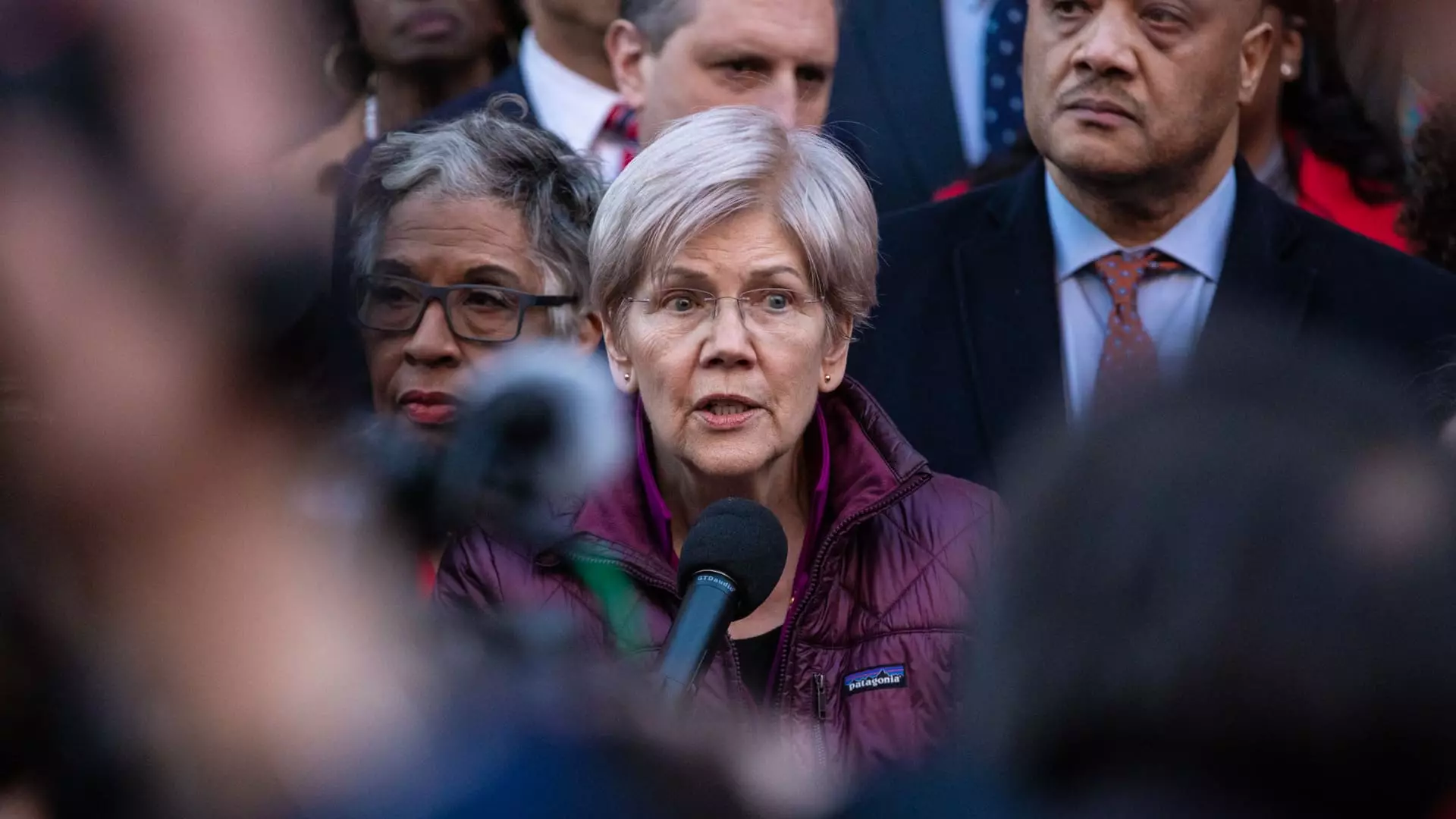The Federal Deposit Insurance Corporation (FDIC) has been at the forefront of maintaining stability in the U.S. banking system. However, recent developments reveal significant challenges that threaten this stability, especially in light of staffing cuts initiated by the Trump administration. Senator Elizabeth Warren’s appeals for a review of these changes signal a growing concern among legislators about the potential repercussions on the federal agency’s oversight capabilities. These staffing reductions, primarily realized through a combination of buyouts and layoffs, have resulted in a depletion of around 1,000 personnel within the organization—a move that raises critical questions regarding the future efficacy of the FDIC as a watchdog for the banking sector.
In addressing the staffing issues, Senator Warren articulated her fears about the potential implications of these reductions not just for the FDIC, but for the broader banking system. The letter she sent to Inspector General Jennifer Fain highlighted an alarming trend: underfunded and understaffed federal agencies could lead to severe consequences in crisis management and regulatory oversight. The caveat here is profound—as banking crises can materialize unexpectedly, having a robust regulatory framework is essential to buffer against systemic risks. Warren’s contention that existing staffing shortages contributed to the failure of Signature Bank is particularly telling; it emphasizes how operational deficiencies may serve as precursors to broader economic turmoil.
The bipartisan letter co-signed by Senators Raphael Warnock, Chris Van Hollen, and Lisa Blunt Rochester emphasizes the urgency of understanding how these staffing reductions impact not just the FDIC but the entire banking framework. Their concerns are valid, as a well-staffed regulatory agency is akin to “having cops on the beat.” When regulatory personnel are sparse, the likelihood of lapses in oversight increases dramatically. The fallout from Signature Bank’s failure serves as a stark lesson that inadequate supervision and support can lead to catastrophic outcomes, not just for financial institutions but for consumers who rely on the stability of the banking system.
The Role of the Inspector General
Inspector General Jennifer Fain’s role is now critical. In her correspondence, she admitted that the full ramifications of the staffing cuts and hiring freeze remain uncertain, yet her commitment to adapt oversight efforts demonstrates an awareness of the pressing need to monitor these developments closely. The FDIC’s mission—to protect depositors and ensure consumer confidence—rests heavily on its ability to maintain a robust and responsive team capable of addressing emerging issues. The Inspector General’s review could serve as a vital checkpoint, helping ascertain whether current operational adjustments can sustain the FDIC’s objectives or if further intervention is needed.
Future Implications for the Banking System
The potential long-term ramifications of the FDIC’s staffing decisions could be far-reaching. If cuts continue and staffing levels do not recover, the reliability and integrity of federal deposit insurance could face considerable jeopardy. This raises critical questions: Will consumers feel secure? Will banks operate with the confidence that regulatory checks are in place? The lessons learned from previous banking failures illustrate that even one significant institutional collapse can prompt chaos, shaking consumer trust to its core.
The actions of the Trump administration and their implications for the FDIC demand careful scrutiny. The challenge now lies in addressing the staffing shortfall to ensure that the federal agency not only recovers but thrives in safeguarding the U.S. banking system. As investigators and lawmakers respond to this situation, it is crucial to remember that effective oversight is foundational to financial stability. Without adequate personnel to enforce oversight, the fragility of the banking system could pose substantial risks—not just to individual depositors but to the economy as a whole. It is imperative that sustained vigilance and proactive measures are implemented to bolster the FDIC’s operational capacity, reaffirming public trust in the American financial system.


Leave a Reply